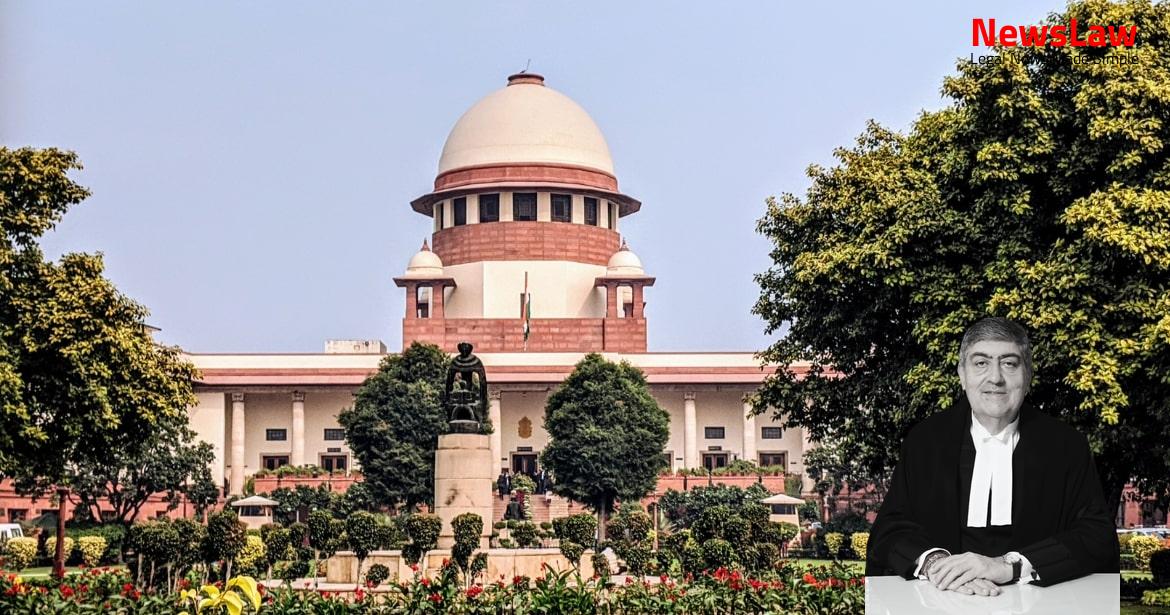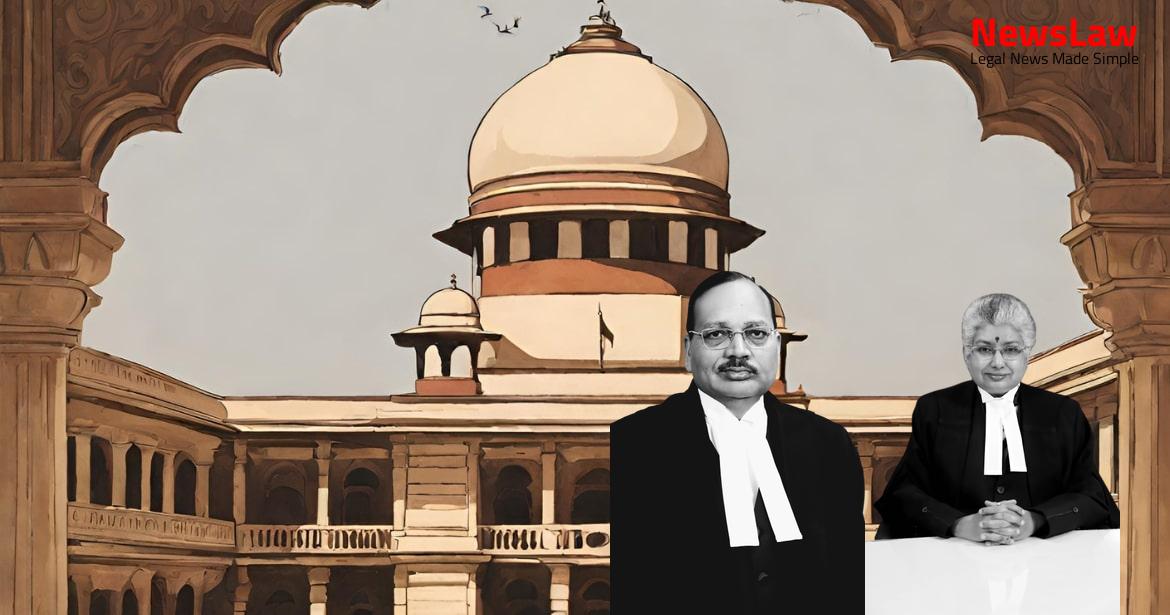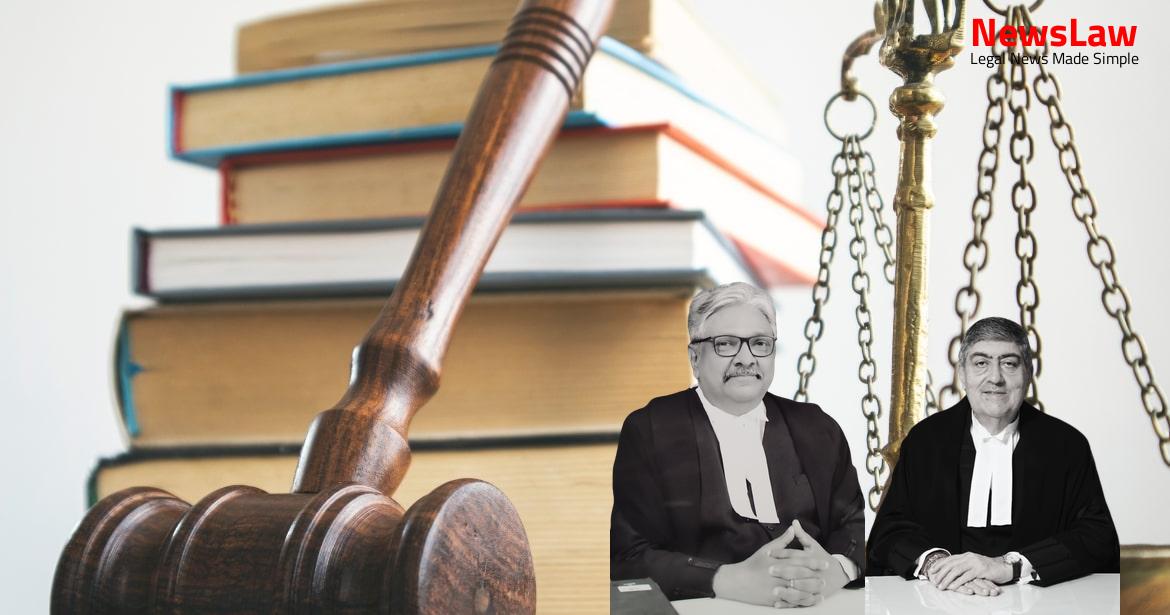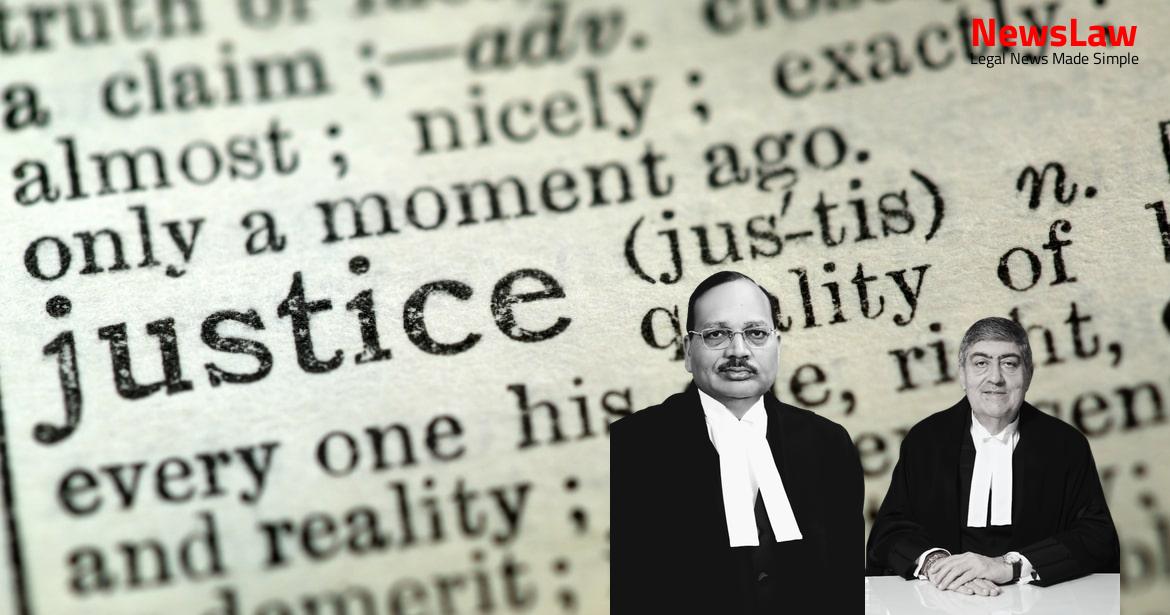The Supreme Court has allowed the transfer of a writ petition challenging reservation provisions to address similar questions of law. The decision emphasizes the importance of legal analysis in cases involving the limitation of reservation percentages. Stay tuned for further updates on this legal issue.
Facts
- The petitioners seek transfer of a writ petition from the High Court of Punjab and Haryana to this Court.
Also Read: Legal Analysis: Ownership Dispute and Validity of Will Deed
Arguments
- The petitioners have brought a writ petition challenging a notification issued by the State of Haryana providing for 10% vertical reservation for economically backward persons in the general category in certain fields of public employment.
- They are hopeful of being selected for the job if the reservation of the EBPG category is removed.
- The petitioners have contended that the reservation provisions in the notification exceed the 50% limit set by previous court cases.
- The petitioners have referred to the case of L.K. Venkat vs Union of India in support of their arguments.
- They have approached the Punjab and Haryana High Court with similar grievances along with several other writ petitions on the same issue.
- The petitioners have requested a transfer of their petition under Article 139A of the Constitution to this Court due to a similar case in Gujarat High Court involving reservation provisions.
- The State of Haryana has opposed the plea for transfer, arguing that the petitioners should wait for the judgment in Civil Appeals instead of bypassing the hierarchical judicial process.
- The petitioners argue that their engagement to the posts is held up due to the pending transfer petition and highlight the legal distinctions between their writ petition and the Civil Appeals pending before this Court.
- The Gujarat High Court had already decided the matter before the introduction of Article 15(6) and Article 16(6) to the Constitution by the Constitution (One Hundred and Third Amendment) Act, 2019.
- This amendment allows the State to provide for a 10% reservation for economically weaker sections of citizens.
Also Read: Analysis of Curative Jurisdiction in Legal Dispute
Analysis
- The Supreme Court is satisfied that the writ petition before the Punjab and Haryana High Court and the appeal in the State of Gujarat case involve similar questions of law of general importance.
- The authority cited does not provide assistance, and three applications for impleadment have been made by individuals.
- Article 139A allows the Supreme Court to transfer or withdraw a case from a High Court based on specific grounds.
- In this case, the main ground for transfer is that similar appeals are being heard by the Supreme Court, and the intervenors have provided additional arguments to distinguish the cases.
- The writ petitioners challenged the selection process after participating in it, and the Court holds that there is no significant difference in the cases based on the timing of relevant ordinances.
- The Supreme Court discretion to withdraw a case depends on the fulfillment of specific conditions, and the exercise of discretion may vary.
- Arguments on merit are deemed less relevant in the current proceedings, and the Court notes the specifics of the reservation for economically backward persons in the selection process.
- The Court finds that adjudication by the High Court in the first instance will not cause any prejudice to the parties involved.
- The case of Sri Selvaganapathy and Co. involved a Writ Petition in the Madras High Court for quashing the rejection of a clemency petition by the President.
- In the case of L.K. Venkat, the question revolved around whether a long delay in deciding a mercy petition allowed the convict to seek commutation of a death sentence.
- The decision in Sri Selvaganapathy and Co. did not establish an absolute law on transferring or withdrawing a case from a High Court to the Supreme Court.
- The appeal of the State of Gujarat in the case of Ms Dulari Mahesh Basagre & Anr focused on whether an Ordinance contradicted the precedent set by the Indra Sawhney case.
- The writ petition before the Punjab and Haryana High Court challenged a notification of 27th September 2013 using the authority of the Indra Sawhney case.
- The decision in the case of Sri Selvaganapathy (supra) was cited by the State respondents in support of their contention.
- The State respondents argued that the pending writ proceedings could wait for the final outcome of the Civil Appeal.
- The petitioner sees no prejudice in withdrawing the writ petition from the Punjab and Haryana High Court to the Supreme Court.
- The petitioner can always return with a similar plea for impleadment after withdrawal or transfer.
- The questions at hand have arisen in two different States and are of substantial general importance.
- There is no reason found to allow the intervention applications for impleadment in a petition under Article 139A of the Constitution of India.
Also Read: Contractual Interpretation in Real Estate Dispute
Decision
- The points involved in the Civil Appeal and the Writ Petition pending in the High Court of Punjab and Haryana require adjudication of substantially the same questions of law.
- The records of the said case are to be transferred to the Registry of this Court by the Registrar General of the High Court of Punjab and Haryana.
- On receiving the records, they shall be placed before the Hon’ble Bench before hearing Civil appeal No. 9546-49 of 2016 for appropriate direction.
- The Transfer Petition stands allowed.
- All other connected applications shall also stand disposed of in the same terms.
- There shall be no order as to costs.
- The CWP No. 7607 of 2019 (Sunil Rathee and Ors. Vs. State of Haryana & Ors.) pending in the High Court of Punjab and Haryana is directed to be withdrawn to this Court for disposal.
- All three applications for intervention shall stand dismissed.
Case Title: SUNIL RATHEE Vs. THE STATE OF HARYANA (2020 INSC 463)
Case Number: T.P.(C) No.-002592 / 2019



